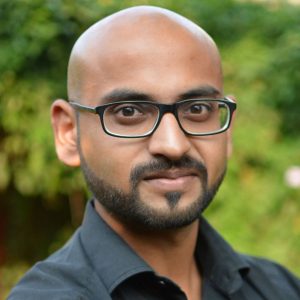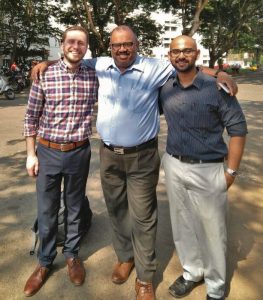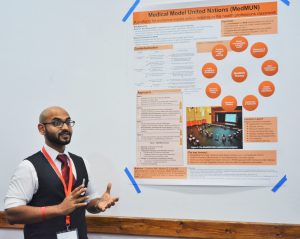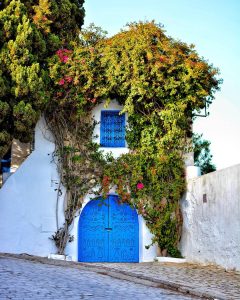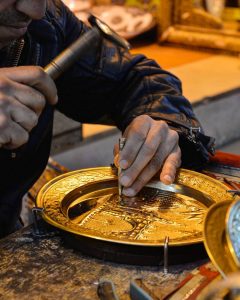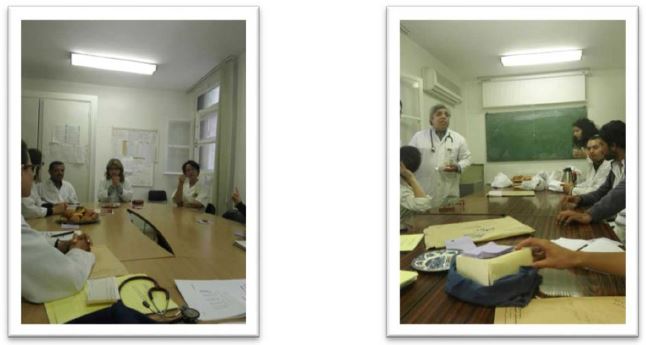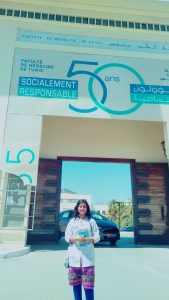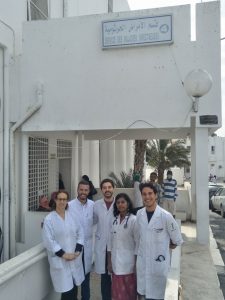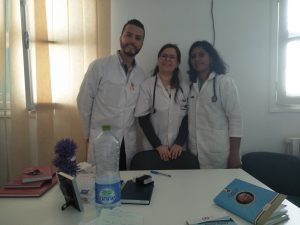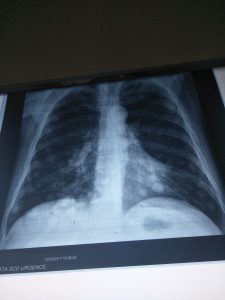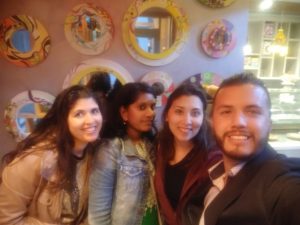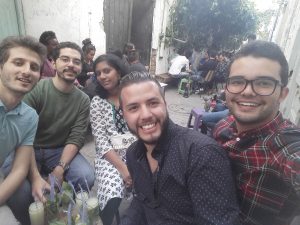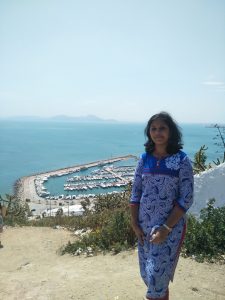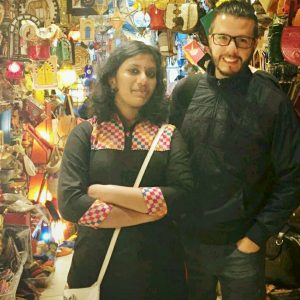Post by Dr. Myron A. Godinho
Research Associate,
Public Health Evidence South Asia (PHESA),
(South Asian satellite of the Cochrane Public Health Group)
Manipal University,
India
Public policy has always been an issue of great interest to me. The task of decision- making for societal development and progress is exciting and terrifying, when one considers the immense responsibility that such a role carries. Such decisions ought to be transparent, and should be justifiable to all the stakeholders involved, especially taxpayers and end-users. This conviction led to my involvement in Model United Nations (MUN) conferences in high school, where I participated as a delegate in various councils, and chaired the General Assembly at the national Bahrain MUN. At medical school, it baffled me that the most phenomenal discoveries in health science were unable to produce the paradigm shifts in human progress that their pioneers had initially envisioned. If health was such an egalitarian topic, why do some societies experience exponentially better health than others? As I engaged with patients throughout my clinical postings, the social determinants of health pointed towards converging disease pathways: it became apparent that the foundational systems of modern societies were not designed with health in mind.
With this understanding and my high school background in policy, I collaborated with college faculty and the student council at Melaka Manipal Medical College (MMMC), in Malaysia, to offer students a platform to foster debate and discussion on pertinent global health issues. Having harnessed their support, I conceptualized/developed MedMUN (Medical Model United Nations) by contextualizing the Model United Nations policy debate platform for deployment among health professions students of various disciplines. With the help of the student body, we recruited a mixed group of medical, dental and pre-medical (foundation year) students to participate in the initiative. After participating in four, weekly training sessions (involving presentations, groups sessions and peer learning), the students then participated in the 1st MedMUN debate where they discussed international maternal surrogacy legislation.
After I completed my MBBS studies, I was keenly looking for opportunities to deploy MedMUN in larger, more diverse settings, with an interprofessional focus. It was during this networking, that my teacher at MMMC in Manipal campus strongly encouraged me to submit my research entry for the Student Projects for Health competition by GEMx for the World Summit for Social Accountability 2017. It was a proud moment to know that my project was selected and funded to be presented at this esteemed Summit at Tunisia. It was extremely special and exciting as this was my first international conference experience (please modify this statement). Through the Facebook group and mails from the other winners during our pre-conference preparation, I began to see the strong links that previous student winners had developed with each other, facilitated by the hard work of the GEMx and FAIMER teams. I was also fortunate enough to meet Justin Seeling during his trip to Manipal for the IQMU, and see the face behind the patient and helpful e-mails that would regularly keep me posted on developments in the run-up to the conference. A few months later, armed with my poster and travel bag, I boarded the plane to Tunisia with Dr. Ciraj and much excitement.
Disembarking at the airport, I met with a number of people, who, like me, were protectively clutching large cardboard tubes. Introducing myself, I found myself surrounded by other medical students, each with their own stories and experiences. Together, in a place we’d never before been to, we finally found our way to the waiting buses and were off to Hammamet. The bus ride took us out of the city and into the lush Mediterranean countryside. Acres of olive gardens and farms flanked the winding highway that carried us, set to the backdrop of a mountain range in a national park. The warm sun and the rhythmic sway of the bus lulled me to sleep, and I woke just as we arrived at the conference venue. It looked more like a little walled village than it did a hotel; and I learned that that was exactly what a medina was. After hovering in the lobby to finalise registration formalities, we were off, led by a sprightly young concierge to our respective rooms to freshen up. Once I was done, I headed out to explore the medina. The ‘souk’ was lined with shops, replete with salesmen peddling their wares: food, clothes, souvenirs, incense, olive wood carvings. A metalworker tapped away with his hammer, engraving a metal plate as I watched intently. Sitting at an outdoor restaurant, I learnt about harissa chilli and ‘brik’, a traditional Tunisian pastry. Soon after, a snake charmer sent a live snake down my shirt while three cobras swayed lazily on a stage. I decided that that was quite enough excitement for one evening and instead went in search of the nearby Mediterranean shoreline and a quiet dinner of mixed mezzeh and a delicious steak.
The next morning I met most of the other SPFH winners; each of us sharing our travel experiences and our mutual excitement at having made it to the conference successfully despite various obstacles. The conference began in full swing, and we were introduced to the Student Network Organisation (SNO) – an excited bunch of well- intentioned, enthusiastic medical students from all corners of the globe who networked and collaborated with other organisations (e.g. IFMSA) to promote a proactive approach to medical education. We all introduced ourselves and were immediately involved in a group activity that highlighted the main conference themes. There were large cohorts of students from some countries in particular, but language and culture was no barrier whatsoever. A powerful sense of community and inclusion prevailed, and it wasn’t long before we, the new additions, were making impromptu presentations and securing new friends through it all. We were encouraged to maintain our involvement and affiliation with the organisation by assuming positions of responsibility in the secretariat, as regional representatives, or in the many other professional bodies affiliated with the THE Network:TUFH. I myself signed up to be a journalist for the quarterly newsletter and recently published in the June 2017 issue.
Over the next two days we were given the opportunity to present our posters, receive feedback and questions, and learn from the experiences of our peers. It opened my eyes to the different ways design and implementation challenges could be overcome to achieve better community health outcomes. I was particularly enamoured by other projects which, like mine, had focused on capacity building in health policy and systems to foster systemic change in the way that health systems ensured the basic health status of their populace. This conference offered me the opportunity to network with people working towards similar goals as myself, and learn from their experiences while sharing mine too. It truly was a mutually beneficial experience for us all. Through further seminars organised by the SNO, we discussed with, and received valuable advice from, potential mentors; drafted a policy statement representing the views of the international medical student community; and thought deeply about our roles and responsibilities in society at large. It was a wakeup call, and a most welcome one too.The summit was not without ample opportunities to socialise and mingle with our peers in a ‘less structured’ setting. Each evening provided another exciting opportunity to meet up with our newfound friends and discuss work, play, and everything in between. We were also able to take a tour of the historic city of Carthage, and visit Sidi Bou Said to capture some iconic photos of the region and make some great memories. Overall, the amalgamation of intellectually stimulating conversations, silly shenanigans, and barefoot midnight strolls through the freezing surf of the Mediterranean made for a heady, addictive concoction of experiences.
Because of the opportunity offered to me through the generosity of GEMx and FAIMER, I am encouraged to continue pursuing a career in public health, with a focus on evidence to inform health policy; and have a renewed passion to continue building capacity to improve health policy and system restructuring in India. My immediate aims are to publish my work in a peer-reviewed journal, and I look forward to collaborating with my new network of colleagues on future projects. Encouraged by the success of the project I presented, I’ve submitted more of my work for conference presentation opportunities, and will be presenting another recent project at the International Congress on Peer Review and Scientific Publication in Chicago, September 2017. This experience has undoubtedly helped to shape my career; I will soon be pursuing postgraduate studies in health technology assessment (HTA), to use medical research together with health economics to inform resource-allocation decision in public healthcare systems for Universal Health Coverage (UHC). While much work remains to be done, the knowledge that I am just one of many who share this vision is a great source of encouragement and motivation for me.I might be tempted to say that the World Summit for Social Accountability 2017 was a truly ‘once in a lifetime experience’, but that would be to understate my desire to participate in such a conference again. No, it was a truly momentous experience; one that I hope to, once again, be a part of in the near future.

